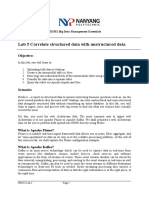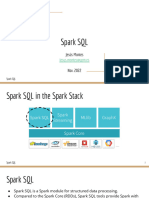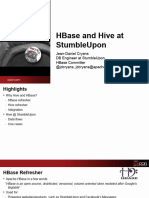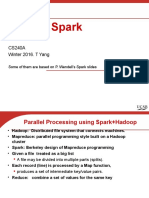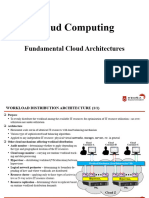0% found this document useful (0 votes)
33 views1 pageData Exploration On Databricks - Databricks
The document outlines the process of data exploration on Databricks, specifically focusing on parsing weblogs using regular expressions to create an external table. It provides a detailed example of the table creation process, including the SerDe definition and the necessary SQL commands. Additionally, it highlights the use of Spark SQL for querying the structured weblog data efficiently.
Uploaded by
Tuan Minh PhamCopyright
© © All Rights Reserved
We take content rights seriously. If you suspect this is your content, claim it here.
Available Formats
Download as PDF, TXT or read online on Scribd
0% found this document useful (0 votes)
33 views1 pageData Exploration On Databricks - Databricks
The document outlines the process of data exploration on Databricks, specifically focusing on parsing weblogs using regular expressions to create an external table. It provides a detailed example of the table creation process, including the SerDe definition and the necessary SQL commands. Additionally, it highlights the use of Spark SQL for querying the structured weblog data efficiently.
Uploaded by
Tuan Minh PhamCopyright
© © All Rights Reserved
We take content rights seriously. If you suspect this is your content, claim it here.
Available Formats
Download as PDF, TXT or read online on Scribd
/ 1










